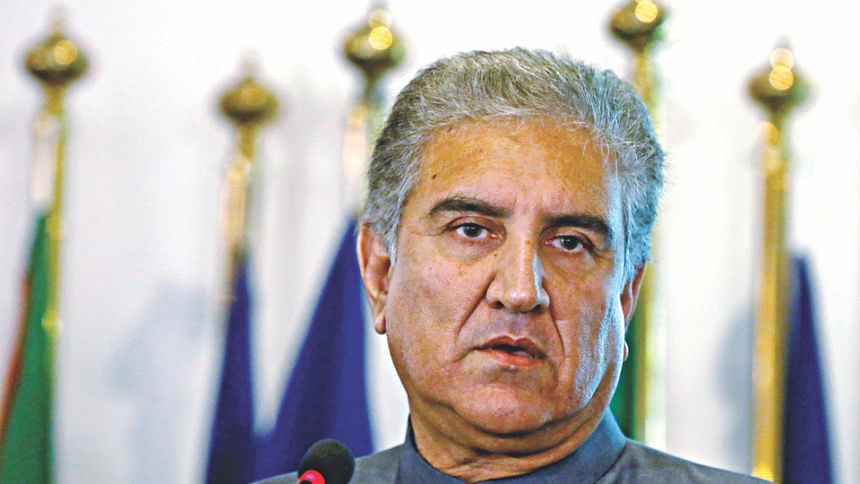Ready for talks with India

-
Qureshi calls for lifting restrictions in the Valley
-
Pak PM, US Senator Sanders raise plight of Kashmiris
After Pakistan PM Imran Khan had ruled out dialogue with India until it reversed the decision to revoke J&K's special status, his foreign minister S M Qureshi in an apparent turnaround on Saturday said that Pakistan was open to dialogue if India released the J&K leaders and allowed him to meet them.
Qureshi was quoted as having said that Pakistan had never said no to dialogue with India. However, he added that "we cannot see the environment of dialogue being created by India". Some of the conditions for dialogue Qureshi was said to have specified in his interview to BBC included India lifting restrictions in the Valley, releasing the imprisoned Kashmiri leaders and allowing him to meet them.
In his NYT opinion piece, Khan was quoted as having said that dialogue was possible only when India reversed "its illegal annexation of Kashmir, ends the curfew and lockdown, and withdraws its troops to the barracks''.
While Khan and other Pakistani leaders have threatened that the situation the Valley could lead to a war, if not a nuclear exchange, Qureshi also said Saturday war was not an option to deal with the issue of Kashmir.
Qureshi's emphasis on dialogue came even as India again underscored its position that talks were possible only if, as the government has repeatedly said, Pakistan took verifiable and irreversible action against cross-border terrorism.
Meanwhile, Imran Khan and US Senator Bernie Sanders yesterday raised the plight of Kashmiris, who have been living under a lockdown for four weeks in occupied Kashmir, while separately addressing the 56th Convention of Islamic Society of North America (ISNA).
Speaking at the event, Sanders, a Democratic presidential hopeful for the US Elections 2020, termed India's move to annex occupied Kashmir as "unacceptable".
"I am also deeply concerned about the situation in Kashmir where the Indian government has revoked Kashmiri autonomy, cracked down on dissent and instituted a communications blackout.
"The crackdown in the name of security is also denying the Kashmiri people access to medical care. Even many respected doctors in India have acknowledged that the Indian government-imposed restrictions on travel are threatening the life-saving care that patients need," he said.

 For all latest news, follow The Daily Star's Google News channel.
For all latest news, follow The Daily Star's Google News channel. 



Comments